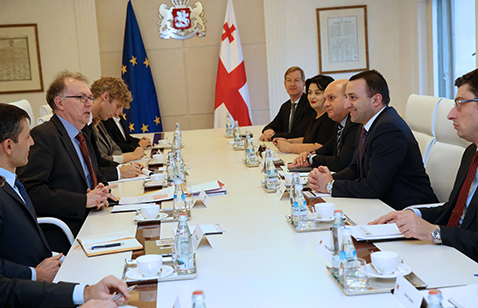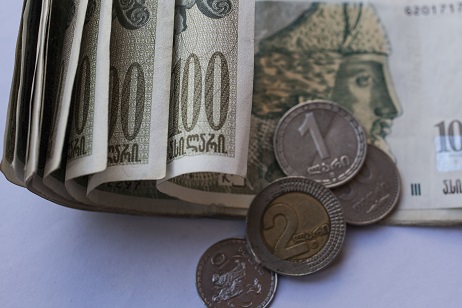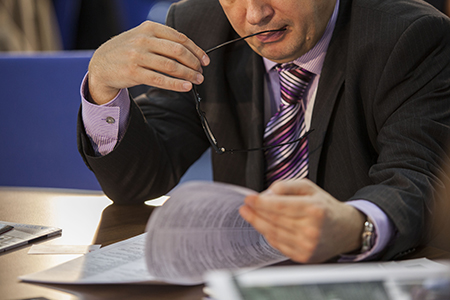End of IMF review mission to Georgia: Economy will reach 3% in 2016

The International Monetary Fund (IMF) mission to Georgia has ended, and the organisation has published an optimistic concluding statement that claims Georgia's economy is stabilising and growing and foreign trade is also improving.
The IMF mission led by Mark Griffiths visited Tbilisi from November 9 to 21 to conduct discussions on the second and third reviews under Georgia’s Stand-By Arrangement (SBA) with IMF.
On December 8 Griffiths issued the statement, which explained the reasons behind the devaluation of Georgia's national currency, predicted how the local economy would grow and offered recommendations for the Georgian Government for next year.
The IMF team explained the Lari depreciation of more than 35 percent against the US dollar over the past year was caused by the resulting shortfall in foreign earnings, combined with the worldwide strengthening of the US dollar.
However, the IMF team saw some positive results of the Lari devaluation saying "this depreciation is helping the economy to adjust to external shocks”. But it has also increased the debt burden of borrowers with dollar loans, weighing on domestic demand, said IMF.
Meanwhile, the IMF statementsaid the Lari depreciation helped absorb the external shock by reducing imports, preserving the competitiveness of domestic producers and protecting the value of remittances.
IMF forecasts Georgian economy will reach 3% in 2016
The IMF mission believed the Georgian economy appeared to be stabilising, despite the severe shock. It appeared the Georgian economy would exceed the IMF's projected outlook, said the statement.
Economic Growth has been slightly higher than projected and should reach 2.5 percent in 2015, before strengthening to three percent in 2016. This forecast was subject to downside risks, mainly from further deterioration in trading partner economies. While inflation had picked up, it should end the year only slightly above the National Bank of Georgia’s (NBG) inflation target of five percent,” said the statement.
The IMF mission was also optimistic about Georgia’s foreign trade, saying "there are signs that Georgia’s foreign trade is improving: Exports and remittances have bottomed out, while tourist inflows are growing again”.
The IMF noted the total Government revenue should increase this year despite the slowdown.
… because tax revenue has performed well and non-tax revenue and grants have been even higher than projected. These higher revenues should allow the Government to keep the fiscal deficit at or only slightly above the three percent of GDP target in the original budget despite higher than projected spending on universal healthcare, subsidies, and the reconstruction works caused by the June floods,” said the statement.
What does IMF recommend?
The IMF mission recommended the Georgian Governmethe better monitor health spending in 2016.
In line with the Government’s priorities to strengthen social protection and promote growth, the budget increases spending on universal healthcare and pensions. Health spending in 2015 has been much higher than budgeted. The Government needs to monitor this spending closely in 2016, make sure that it introduces efficiency savings, and, if spending overruns persist, have contingency plans ready to keep the deficit to three percent of GDP,” said the statement.
Another recommendation was to "carefully” manage fiscal risks.
Fiscal risks from Government guarantees—including those to backstop power-purchase agreements to encourage hydropower investment—should be managed carefully to safeguard Georgia’s hard-earned fiscal sustainability. It is important to put in place a framework in line with best international practice to monitor, assess, and fully disclose fiscal risks from such guarantees,” read the statement.
At the end of the comments, IMF said its final discussions with the Georgian Government were successful, and the second and third reviews could be completed in early 2016.
 Tweet
Tweet  Share
Share






